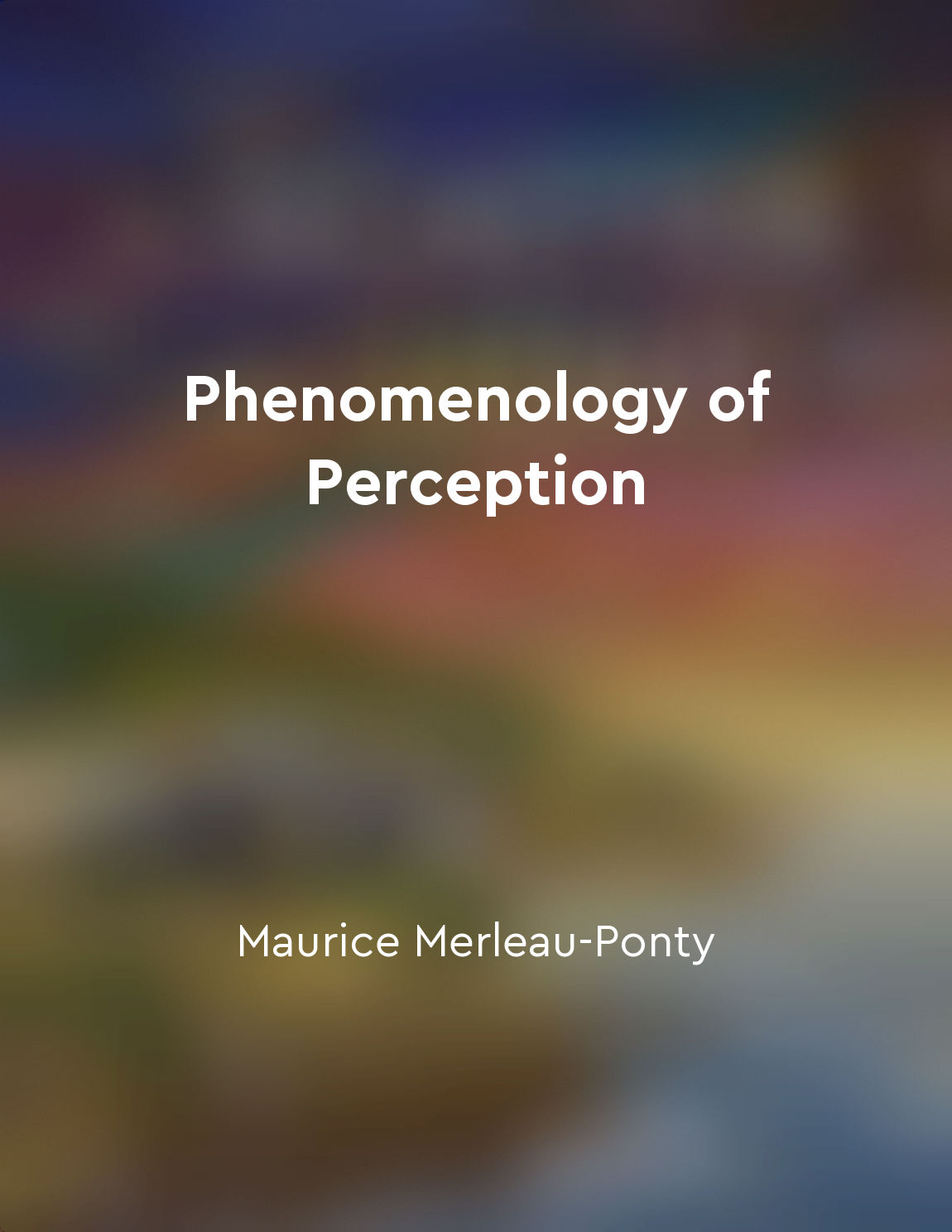Transcendental aesthetic reveals the conditions of sensibility from "summary" of Critique of Pure Reason by Immanuel Kant
The Transcendental Aesthetic, as expounded in the Critique of Pure Reason, serves the crucial function of laying bare the fundamental conditions that govern our sensibility. Through this examination, Kant endeavors to illuminate the underlying principles that shape our sensory experiences and perception of the external world. By delving into the nature of our intuition, he seeks to uncover the a priori forms that structure our encounters with reality. Kant posits that our sensibility is not a passive receptacle of external stimuli, but an active faculty that organizes and synthesizes sensory data. This faculty operates according to certain necessary rules and frameworks, which Kant terms as the forms of intuition - namely, space and time. Space serves as the framework for external perception, providing the basis for our understanding of the spatial relationships between objects. Time, on the other hand, governs the temporal succession of events, enabling us to comprehend the flow of experiences. Through the Transcendental Aesthetic, Kant elucidates how these forms of intuition are not derived from experience, but are inherent structures of the human mind. They are universal and necessary conditions that shape our sensory encounters with the world, allowing for coherence and intelligibility in our perception. Without these a priori forms, our sensory experiences would lack consistency and order, rendering the world an unintelligible chaos. Furthermore, Kant argues that the Transcendental Aesthetic reveals the limitations of human cognition when it comes to understanding the nature of reality. While our sensory experiences are constrained by the forms of intuition, they do not provide us with direct access to the noumenal realm - the realm of things as they are in themselves. Our knowledge is confined to the realm of phenomena, where objects appear to us in accordance with the structures of our sensibility.- The Transcendental Aesthetic underscores the active role of the mind in shaping our perception of the external world. It highlights the necessary conditions that govern our sensibility, shedding light on the inherent structures that mediate our experiences. Through this analysis, Kant lays the groundwork for his larger project of critiquing the limits and possibilities of human knowledge.
Similar Posts

Perception is a dynamic and ongoing process
Perception is not a static event that occurs in isolation; rather, it is a continuous and fluid process that unfolds over time....
Knowledge is derived from experience and reason
Knowledge is not something that we are born with, but rather something that we acquire through our experiences and our ability ...
It reveals hidden aspects of the artist or poet
The creative act, whether in art or poetry, has the power to unveil hidden truths about the artist or poet behind the work. Thi...
Intuition opens the door to the mysteries of existence
Intuition is not merely a way of knowing or understanding things; it is a powerful force that can lead us to the very essence o...
Teleological argument supports the idea of a harmonious universe
The teleological argument posits that the order and purpose evident in the natural world point towards the existence of a supre...
It frees artists and poets from conventional thinking
The concept of freeing artists and poets from conventional thinking is crucial to the creative process. When individuals are ab...
The experience of beauty can be profound and meaningful
The experience of beauty, when genuine and deeply felt, has the power to move us in profound and meaningful ways. It is not mer...
Criticism helps refine artistic taste
In the realm of aesthetics, the act of criticism plays a vital role in the refinement of one's artistic taste. When we engage i...

